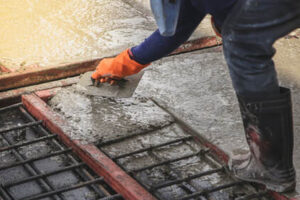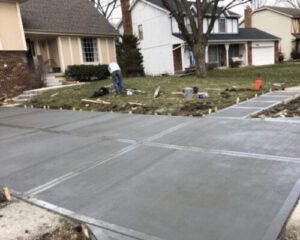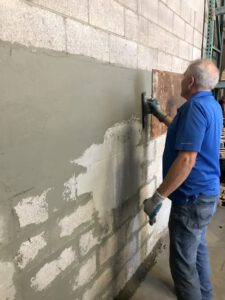Anyone who has built, added to, or renovated a home knows the importance of contractors. These individuals manage construction sites and work independently or as part of a larger home improvement company.

When hiring Fort Worth Contractors review their website to get an idea of their scope of work and experience. Also, pay attention to how they communicate.
Choosing contractors is one of the most important steps in your construction project. Finding a contractor with the right qualifications is critical to your success. Fortunately, there are many ways to determine whether a contractor is qualified to work on your project. You can ask for references, look at previous jobs and projects, and interview the contractor on site to observe their crew and see the quality of their work. Moreover, you should check if the contractor has any industry certification and if they follow industry guidelines and standards.
The qualifications of a contractor vary depending on their education and experience in the field. Some contractors have a relevant degree in the construction field, while others gain extensive experience working on different residential and commercial projects before they obtain a license. Educated contractors have knowledge of construction techniques and building regulations. They are able to understand the different aspects of a project, including design, budget allowances, and work schedules. Moreover, they are able to read blueprints and understand the different materials that are required for construction. In addition to a license, contractors should also have business insurance and worker’s compensation to protect themselves from accidents or injuries. Some states also require contractors to have surety bonds to guarantee they will complete the job as promised or reimburse the client.
Licenses
Contractors often must have certain licenses and certifications to work in their fields. This depends on state and local laws as well as the kinds of projects contractors do. For example, some states require all contractors who build or modify buildings to be licensed by the state. Others only require licensing for home improvement contractors or for those who perform work in a specialized area, such as swimming pools, roofing, or masonry. Other states may also require contractors to pass trade and law exams, have a minimum amount of business experience, and provide proof of financial stability.
Contractors must also have the right insurance coverage to protect themselves and their clients. This includes general liability and property damage insurance, which should cover the cost of repair or replacement of a damaged item. It should also cover any legal fees resulting from lawsuits brought against the contractor. In addition, the contractor must have workers’ compensation insurance to pay for medical expenses and lost wages if an employee is injured on the job.
Some contractors are self-employed and operate their own businesses. In this case, the contractor must obtain a business license and maintain the required tax-specific identification number, permits, or licenses. Contractors must also keep detailed records of all transactions and have a certified accountant review them periodically. In addition, some contractors must register as taxable entities and submit their tax returns.
If a contractor works for a corporation, they must have a signed and notarized letter from the corporate officer stating their name, address, social security number, and percentage share of ownership. The corporate officer must also certify that the company has insurance and that the insurance meets the required requirements.
Insurance
Contractors often need to show proof of insurance to secure contracts with customers or clients. For example, a client may require that contractors have general liability insurance to cover property damage and bodily injury. Some contracts also require that a contractor have performance bonds to ensure that the work will be completed and done properly.
Depending on the size of the contracting firm, the insurance requirements can vary significantly. For instance, a small contractor may only need the bare necessities, such as general liability and workers’ compensation insurance. However, a large construction firm might need to include other policies, such as commercial auto and business interruption insurance.
While many independent contractors have specific coverage needs, it’s possible to bundle some of these policies together to create a more comprehensive policy. For example, a contractor could have general liability combined with workers’ compensation and commercial auto insurance to form a business owner’s policy (BOP). Some policies can also include professional indemnity insurance or business property insurance, which can help protect the financial integrity of the business in case of loss or damage.
A contractor can also buy an excess insurance policy to provide additional liability protection in the event that a claim exceeds their standard limit. This can be an effective way to provide more robust insurance coverage and demonstrate that the contractor is serious about their business.
As a specialist broker, HUB can help contractors assess their basic insurance requirements and put together a customized bundle of coverage. We can also assist with the more complex requirements and regulations that apply to larger contracting firms. For example, we can advise a company on the nuances of a CCIP, or owner-controlled insurance program, and how it might impact the coverage available.
Communication
In construction, good communication is essential to a successful project. This involves transferring information clearly from one person to another, with the intended recipient understanding the message. Unfortunately, poor communication in the construction industry is common and often results in misunderstandings and delays. To avoid this, it is important for architects and contractors to communicate effectively throughout the design process. This includes discussing the contractor’s perspective, which can lead to a shared perspective and a successful build.
Communication also requires active listening. This is especially critical when working with a contractor, as they may use jargon that you don’t understand. To ensure that your contractor understands you, speak slowly and clearly, and try to avoid using jargon as much as possible. By doing this, you can ensure that your contractor understands the message you are trying to convey and will be able to respond in a timely manner.
Another tip is to keep a project journal. This can be as simple as a notebook or an app, but it will help you keep track of the project timeline and delivery dates. It is also a great place to jot down any questions that may come up throughout the day. This will ensure that you and your contractor are on the same page with respect to what is going on each day, which is crucial for maintaining clear expectations throughout the project.
Finally, it is important to have a single source of truth for accessing project information. This will help prevent unnecessary time spent searching for information and resolving issues. It is also a good idea to establish a method for communicating changes before the start of the project. This will prevent information from being lost and will help reduce the number of RFIs and change orders.




